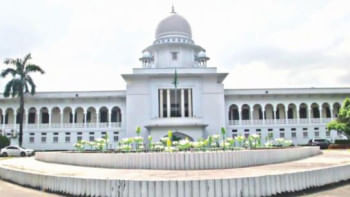Press Freedom Index: Bangladesh up 16 notches

Bangladesh's press freedom improved, climbing from 165 to 149 in the World Press Freedom Index, the latest release from Reporters Without Borders (RSF) assessed.
Despite this rise, the press freedom situation in Bangladesh is still classified as "very serious".
The report said today's news media are caught between preserving their editorial independence and ensuring their economic survival.
"At a time when press freedom is experiencing a worrying decline in many parts of the world, a major -- yet often underestimated -- factor is seriously weakening the media: economic pressure," said the report.
"Much of this is due to ownership concentration, pressure from advertisers and financial backers, and public aid that is restricted, absent or allocated in an opaque manner," it added.
"The economic indicator on the RSF World Press Freedom Index now stands at an unprecedented, critical low as its decline continued in 2025. As a result, the global state of press freedom is now classified as a 'difficult situation' for the first time in the history of the Index," it continued.
Bangladesh's ranking is better than those of Pakistan and India, both of whom are several notches below, at 158 and 151 respectively.
The Index's survey shows that editorial interference is compounding the problem, with respondents reporting that media owners either "always" or "often" limited their outlet's editorial independence.
In the Asia Pacific region, the concentration of media ownership in the hands of political magnates threatens media plurality, said the report.
The report quoted Anne Bocandé, RSF editorial director, as saying, "Guaranteeing freedom, independence and plurality in today's media landscape requires stable and transparent financial conditions. Without economic independence, there can be no free press. When news media are financially strained, they are drawn into a race to attract audiences at the expense of quality reporting, and can fall prey to the oligarchs and public authorities who seek to exploit them."
"When journalists are impoverished, they no longer have the means to resist the enemies of the press -- those who champion disinformation and propaganda," said Bocandé.
The report said, "For the first time in the history of the Index, the conditions for practicing journalism are poor in half of the world's countries and satisfactory in fewer than one in four."
The Index is based on a score ranging from 0 to 100 that is assigned to each country or territory, with 100 being the best possible score (the highest possible level of press freedom) and 0 the worst.
This score is calculated on the basis of a tally of abuses against media and journalists in connection with their work and a qualitative analysis of the situation in each country.
Bangladesh's score increased to 33.71 from last year's 27.64, while top-ranking Norway has scored 92.31 this year.

 For all latest news, follow The Daily Star's Google News channel.
For all latest news, follow The Daily Star's Google News channel. 



Comments